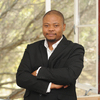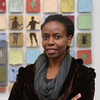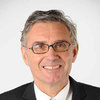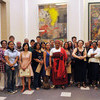Academic Development Programme: Student success, not just access
27 July 2015
Fifty percent of South Africa's university intake does not graduate, at a cost of some R5-billion in subsidies, a massive waste of human potential, and a severe drag on transformation.
Only 10% of the country's black youth get into higher education. UCT enrols the top end of these students – and yet, in a number of our undergraduate programmes, only one-third graduate in regulation time, and a similar proportion do not graduate at all. It?s a revolving door that sees many talented individuals leaving with nothing but debt.
"It's an indictment on our higher education system," says Emeritus Professor Ian Scott, former director of UCT's Academic Development Programme (ADP).
"We must ask the question: Why are UCT's performance patterns still so skewed by race when we're attracting an elite?"
The answer goes to the heart of transformation, which is not just about access, but critically, about success among a group of students rendered vulnerable by the articulation gap between school and university, says Scott.
The central challenge of transformation in the student sector lies in substantially growing the number of black graduates, with the ultimate aim of achieving "equity of outcomes".
Twin goals of access and success
This challenge has been at the heart of the mission of the ADP since its establishment in 1980, when the then-government was entirely opposed to such work and the resources for it had to come from antiapartheid donors and UCT itself.
Scott notes that the ADP's original mandate was twofold: to ensure that places were available for talented black students, the great majority of whom were then from disadvantaged educational backgrounds and did not meet UCT's admissions criteria; and, in partnership with the faculties, to establish or promote teaching-and-learning structures and approaches that would facilitate these students' success.
Over time, against the backdrop of wideranging social and institutional changes, the ADP has introduced a range of educational development initiatives to pursue the twin goals of equity of access and equity of outcomes.
The key elements have been: the establishment of the Alternative Admissions Research Project (AARP, now CETAP, an independent unit in CHED), which pioneered innovative pre-entry testing to identify talented students from a range of backgrounds; the development of foundational courses and 'extended programmes' to enable students who are underprepared as a result of educational inequalities to acquire sound academic foundations for completing their degrees; and the provision of interventions in key academic literacies, particularly in language and numeracy, that are essential for successful university learning.
The ADP staff establishment now comprises some 50 academics from a range of disciplines who have specialised in educational development. They are located in the faculties, where core teaching and learning takes place, and in two inter-faculty units, the Language Development Group and the Numeracy Centre. They're supported by 12 PASS staff.
Mainstream the interventions
As the ADP's main purpose has been to redress historical educational inequalities, its work has focused on black students as the group most affected by the legacy of apartheid. Given the demographics of UCT's intake, ADP interventions have generally been limited to a minority of the student body.
However, it has become clear that educational development approaches now need to be expanded into UCT's 'mainstream' teaching-and-learning processes, for two reasons: first, to strengthen UCT's capacity to deal effectively with the wide diversity that exists in students' educational and linguistic backgrounds (an essential condition for accelerating transformation); and second, because it's evident that the need to strengthen learning is not confined to a minority of black students.
This need is making additional demands on all ADP staff: to work not only with students, but increasingly in partnership with the faculties and academic departments, on tasks such as course and curriculum design, inclusive teaching approaches, and integrating academic literacy development into regular programmes.
Establishing a curriculum structure that allows diverse educational backgrounds to be successfully accommodated – with the additional and different forms of teaching and learning this entails – has been a key ADP objective, says Scott.
"This is shown in the growth of extended programmes, as an adjunct to the traditional curricula, which have already contributed to producing many hundreds of black graduates.
"However, add-on foundation courses are not enough to address the problem. These interventions must be mainstreamed."
Change at national level
But changing mainstream structures is largely beyond the power of individual universities. Scott therefore believes that a key element of the solution lies in establishing an extended and fl exible higher education curriculum framework at national level.
Supported particularly by his long-time colleague and dean of CHED, Professor Suellen Shay, Scott was involved in a major Council on Higher Education study that culminated in a proposal for such curriculum reform published in 2013.
"An extended framework, as the norm, would create the curriculum space needed for educational innovations designed to facilitate success among students who are not well served by the traditional curricula – who already constitute the majority of the student intake nationally," says Scott.
"Flexibility in the framework would help to accommodate diversity, enabling students to progress at their own pace, including allowing those who are able to graduate in a shorter time to do so."
The CHE proposal argues that the waste of human and material resources arising from current higher education attrition calls for decisive policy change to meet the needs of the majority.
"Our current system, inherited from colonial times, was designed for a small, largely homogeneous and well-off group," notes Scott.
The system is not well geared to meeting the genuine learning needs of students outside that 'traditional' group. "The outcome, that only 5% of black youth are succeeding in higher education, is disastrous in today's world, and is blocking transformation."
Facilitating transformation through mainstream educational development is now a key challenge, Scott concludes – for the ADP, CHED and the academic community at large.
UCT Writing Centre
Writing has been described (by the likes of American novelist Don DeLillo) as a form of concentrated thinking. It's also central to any student's progress in the university.
That's where the UCT Writing Centre comes in: a student-orientated, one-on-one consultancy service, the centre helps students improve their writing (and their thinking about writing).
Designed as a learning experience, not an editing service, the Writing Centre is geared to help students at any stage of the writing process, whether they need help identifying the requirements of an assignment; understanding how to use readings; sorting out ideas; planning, organising and structuring assignments; clarifying grammar; spelling and referencing; or revising drafts. Consultants – who are trained postgraduate students – also help with general academic conventions such as proposal formats, report writing and poster design.
An average consultation lasts 30-60 minutes. Departments can also request writing workshops for students in their courses.
Story by Helen Swingler. Photo by Michael Hammond.
 This work is licensed under a Creative Commons Attribution-NoDerivatives 4.0 International License.
This work is licensed under a Creative Commons Attribution-NoDerivatives 4.0 International License.
Please view the republishing articles page for more information.
Centre for Higher Education Development
In the news


.jpg)

































































































































































































































